Muhammadu Buhari taking oath of office as the president of Federal Republic of Nigeria
What was probably Nigeria’s longest running drama in political rivalry suddenly and formally ended last week at Eagle Square, Abuja, the Nigerian federal capital.
Back in 1983, Brigadier Ibrahim B Babangida (IBB) conspired with others to overthrow his intimate, President Shehu Shagari, whom he had repeatedly told in the dead of night only some two months to the 31st December 1983 coup that he was Shagari’s “eyes and ears” in the Nigerian Armed Forces.
Muhammadu Buhari, an upright and no-nonsense Major-General from Daura, would become Head of State and Commander-in-Chief of Nigeria’s Armed Forces, a choice designed to invest the junta with legitimacy and credibility.
For the next two or so years, Shagari would be held in solitary confinement in a safe government house in Ikoyi, Lagos, during which time he was not allowed movement outside his bed, living and bath rooms, access to daylight or to any visitors, or to be even spoken to by the secret service steward that served him – the steward was only to listen to Shagari’s requests and act appropriately. President Shagari almost went blind and desperately wished he had been taken to prison, where he would have the chance to interact with people and be a little happier.
Advertisement
Fast forward to 27th August 1985, when IBB sacked General Buhari and marched him into similar captivity in Benin for some three years. During this time, Buhari sadly lost his mother and he would grieve all by himself alone, an experience that pained him the most. On finding out, too, that his hard-pressed wife Safinatu had accepted gifts from IBB, Buhari divorced her. There would be no love lost between the two military academy coursemates and ex-comrades in arms ever since.
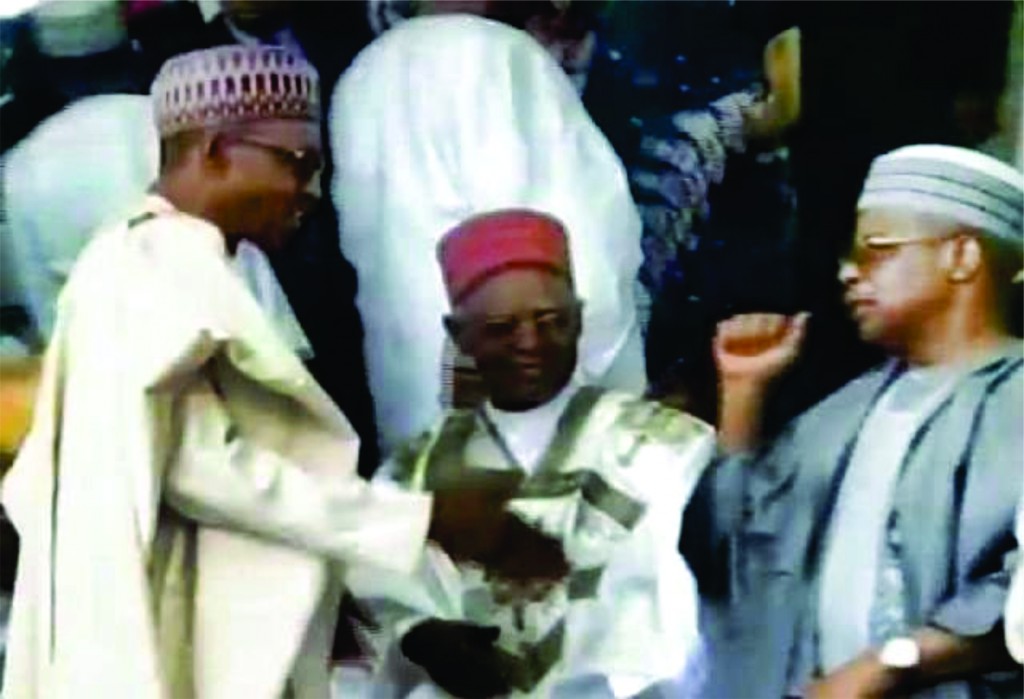
In 1993, Nigerians would, in a wave of public fury at IBB’s duplicity and impunity, see him off to his native Minna State in disgrace after he annulled, without good cause, the purported election victory of Chief MKO Abiola, the popular Yoruba businessman and friend of IBB himself. IBB had apparently been manoeuvring to keep the presidential crown for himself.
IBB has never hidden his disapproval of Buhari’s efforts to return to power, and although Buhari would repeatedly bend backward to seek IBB’s support, he always met a brick wall. For IBB himself nursed the same ambition, and in 2007 would crash out of the race ignominiously, having even failed to submit his PDP presidential nomination form.
Advertisement
That Buhari’s personal and political profile kept on rising, especially in the Nigerian north where he attracted a cult following, was deeply unsettling for IBB whose profile, by contrast, went in the opposite direction. When it came to the 2015 elections, IBB eulogised President Goodluck Jonathan’s presidential ambition but effectively spurned Buhari’s entreaties for support in a series of bungled double-speak.
Few days to the presidential election itself, IBB flew out to Germany ostensibly for medicals, only to fly back in soon after. He probably couldn’t bring himself to vote for Buhari, but then couldn’t risk being found out voting for Jonathan either. This was all too familiar from a man Nigerians had come to know as the Maradona of Nigerian military-era politics, nicknamed after the famed Argentine football master dribbler – and equally infamous for his questionable ethical fibre.
Just as that quasi-illiterate and improbably named Dame Patience Jonathan staged a boycott, some might have thought that IBB wouldn’t bring himself to watch the crowning sight of a man he had once vanquished and banished, especially when he himself had woefully failed at the same goal. They were wrong. The one enduring character of the once famed brave soldier is his brutal realism. I think the Hausa have a phrase for him: ‘Ga tsoro, ga ban tsoro’ – a person of cowardly mien who nevertheless makes a coward of others.
Last Friday, 29th May, at his Eagle Square inauguration as President, Buhari went round to personally greet dignitaries, and joyfully offered IBB a warm handshake of friendship in a symbolic gesture of final reconciliation with his one-time nemesis, who Buhari being some two years older fondly calls Ibro – a Hausa variation of, and an endearing term of affection for, Ibrahim.
Advertisement
Like the fervent realist that he is, General Babangida dutifully responded instead with a raised, clenched fist salute of “Ran ka dade” – the equivalent expression of “May you long live”, which the Hausa traditionally reserve for royalty, the man of power, or the nobility more generally.
All this reportedly happened whilst President Shagari, the Sokoto gentleman-aristocrat, was seated right between the two ex-army Generals who had conspired to overthrow him some 32 years ago, and then turned on themselves, a struggle that for decades would shake and remake northern Nigerian politics and cohesion in several negative ways.
A little earlier in his inaugural address, President Buhari felt compelled enough to declare as follows: “A few people have privately voiced fears that on coming back to office I shall go after them. These fears are groundless. There will be no paying off old scores. The past is prologue.”
Anyone who has closely followed the subtle and not-so-subtle trajectories of Nigerian and northern Nigerian politics in particular, and how these have been impacted upon by the lives of the three political notables, cannot fail to grasp the momentous significance of that brief encounter, and of President Buhari’s preceding assurance.
Advertisement
At a personal level, President Shagari, having long forgiven and put well behind him the ugly events of the early 1980s, must have quietly felt a deep sense of purpose and satisfaction that the two former co-conspirators and rivals have followed in his footsteps and can now be at peace with themselves at long last.
For IBB, now recently turned 70, widowed, and afflicted by ill-health and able to carry on only with the aid of a walking stick, this must be a watershed moment for a broken man who at the height of his power would gleefully declare how much he enjoyed dominating his political environment.
Advertisement
As for President Buhari, his struggles of the past decade plus in pursuit of the Nigerian presidency were as much political as they were personal exertions at self-vindication. It is thus also the ultimate triumph for a man who has fought many battles, and never allowed repeated setbacks to deter him or keep him down.
How Buhari’s second inning as President might pan out only time will tell. His challenges are awesome, but so too are his strengths and goodwill, at home and abroad. If he remains true to himself and his core values and beliefs, his work would be well cut out for him; and history would certainly be kinder to him still.
Advertisement
There is one fate he cannot escape, however. While the tide in the affairs of men and women flows and ebbs in uneven forms and directions, the end consists in the main of certain grief. Every political career ends in tears. I know of no exception in history.
Still, President Buhari and the All Progressives Congress that he leads deserve our best wishes, prayers and support.
Advertisement
May their road be rough.
Othman can be reached via [email protected]
1 comments
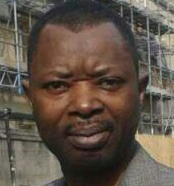
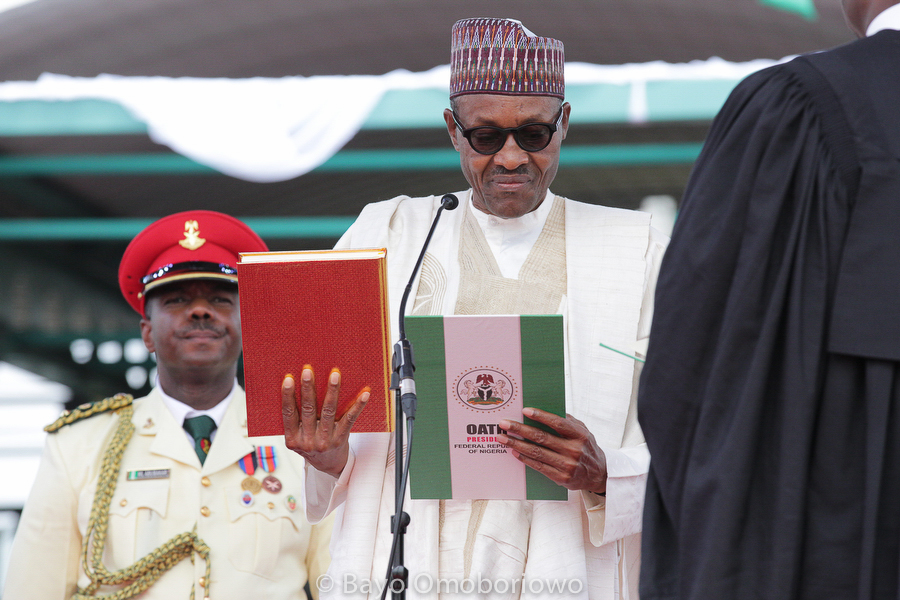
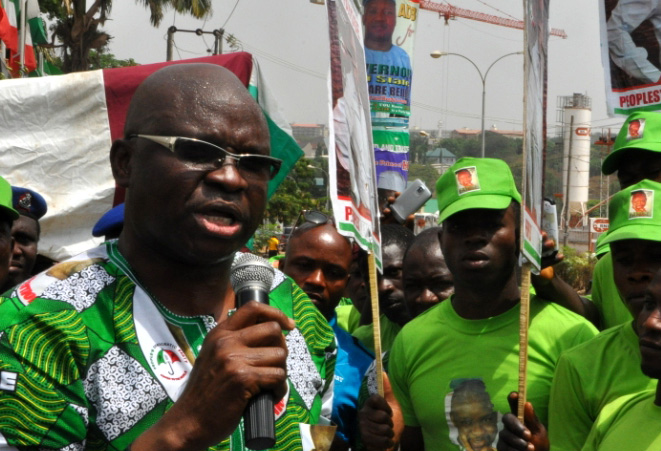

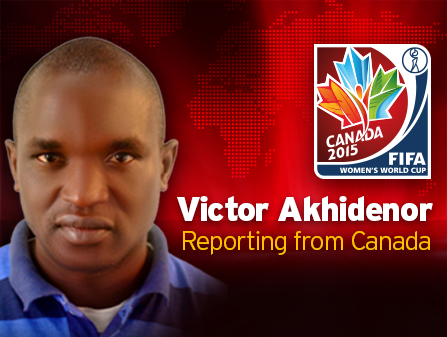


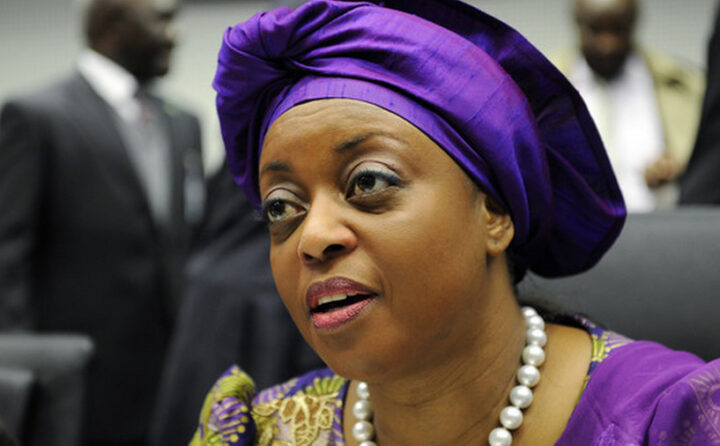
Beautiful..simply beautiful